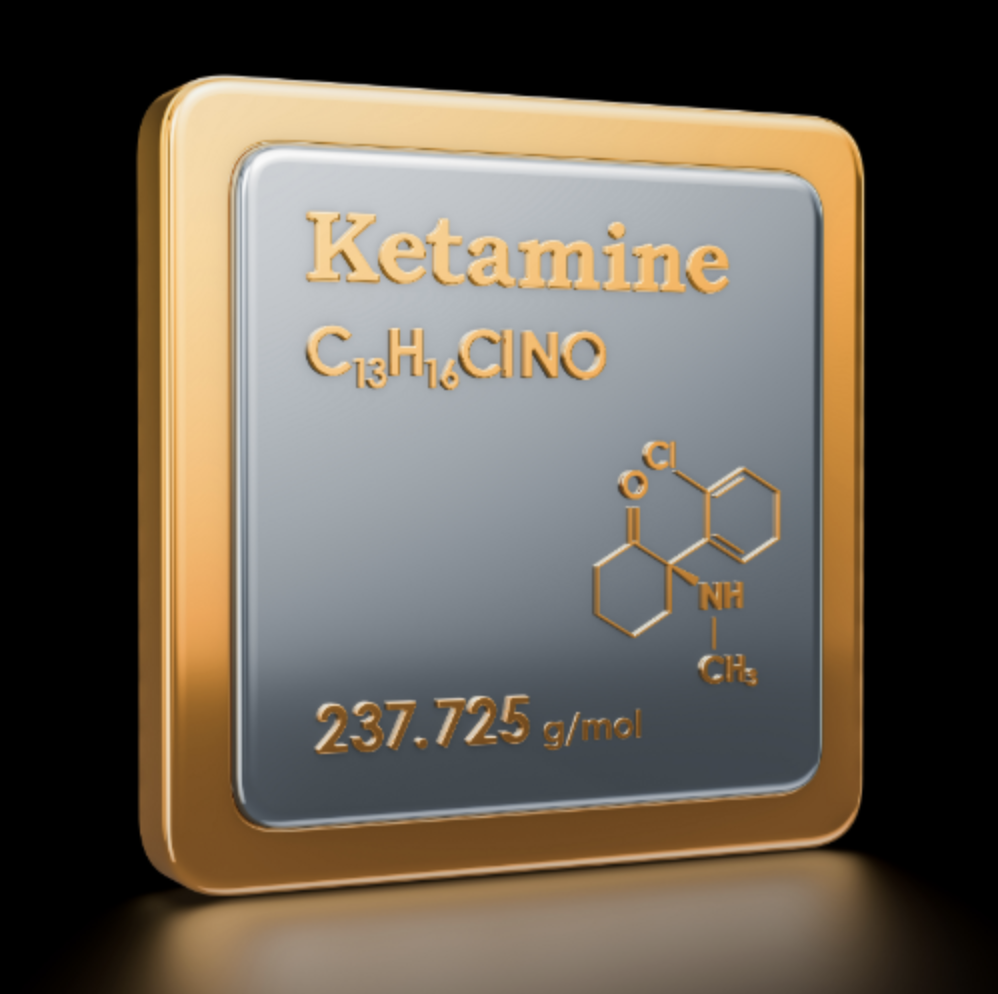Ketamine Therapy for Mental Health: A Comprehensive Guide
Ketamine Therapy for mental health is a journey many are hesitant to embark on.
Let’s face it, the idea of using a substance often associated with party culture as therapy can be daunting. But here’s the thing – this could be your game-changer in battling mental health disorders.
The world of Ketamine Therapy for mental health is complex and filled with both potential benefits and risks that you need to understand fully before diving in.
At Centre You in Provo, UT, we provide this guide to serve as your roadmap, helping you navigate through the science behind it, its effectiveness, possible side effects, cost considerations and long-term implications. So buckle up!
Table of Contents:
- The Science Behind Ketamine Therapy
- How Ketamine Works: The Basics
- Benefits and Success Rate of Ketamine Infusion Therapy
- Treatment-Resistant Depression and Ketamine Therapy
- Side Effects and Risks Associated with Ketamine Therapy
- Eligibility Criteria for Starting Ketamine Therapy
- Cost Considerations for Ketamine Therapy
- The Price of Treatment
- Finding Financial Solutions
- Neurocognitive Effects of Repeated Ketamine Infusion Treatments
- Initial Cognition Scores and Antidepressant Response
- Long-Term Implications Of Ketamine Use
- Potential for Bladder Damage with Long-Term Ketamine Therapy
- FAQs in Relation to Ketamine Therapy for Mental Health
- What is ketamine therapy and how does it work?
- How effective is ketamine therapy for treating mental health issues?
- Are there any risks associated with ketamine therapy?
- Is ketamine therapy available in my area?
- How long do the effects of a single session of ketamine therapy last?
- Conclusion
The Science Behind Ketamine Therapy
Let’s dive deep into the science of ketamine therapy.
This innovative treatment is making waves in mental health circles, but how does it work?
How Ketamine Works: The Basics
A study conducted by Yale University School of Medicine showed that ketamine can significantly reduce depressive symptoms within four hours,.
Intriguingly, these effects lasted up to three days or more after a single dose.
Ketamine and Brain Receptors
Ketamine works its magic by reshaping our brains. It reactivates existing connections while also growing new ones – an amazing feat.
Dissociative Experience with Ketamines
But there’s another side to this coin – dissociation.
An interesting aspect of ketamine’s effect on brain receptors is what some describe as a “trip.”
This experience, while potentially intimidating, is essential in helping to reduce the symptoms of depression.
Moving Forward With Treatment Options
We’ve seen how promising this form of therapy can be; now let’s explore other aspects such as benefits and success rates associated with medically supervised infusion treatments.
Benefits and Success Rate of Ketamine Infusion Therapy
Ketamine infusion therapy is gaining recognition as a promising mental health therapy especially at Centre You in Provo, UT.
This medically supervised treatment has shown remarkable success rates, especially for patients who haven’t responded to traditional therapies.
Treatment-Resistant Depression and Ketamine Therapy
A significant portion of those suffering from depression find little relief in conventional treatments. However, ketamine therapy offers hope where other methods fall short.
The induction course typically consists of 6-8 infusions administered twice weekly over a span of 3-4 weeks.
This approach has been found to be encouraging even for those with severe MDD that have not responded well to traditional treatments.
Patients report experiencing symptom relief that was previously elusive under standard care practices.
In fact, many people notice an improvement within hours after starting ketamine therapy – far quicker than the several weeks often required by antidepressants to take effect.
If you’re curious about ketamine therapy and its potential advantages, this resource offers useful information on how it operates and what can be anticipated throughout the process.
Side Effects and Risks Associated with Ketamine Therapy
Patients undergoing ketamine therapy may experience potential adverse effects, just like any other medical treatment.
Patients may experience nausea or dizziness post-treatment.
Sometimes there could be a headache or pronounced drowsiness too.
Eligibility Criteria for Starting Ketamine Therapy
The eligibility criteria for starting ketamine therapy isn’t universal.
It largely depends on the person’s treatment history.
Other factors include certain risk elements such as cardiovascular disease, hyperthyroidism, and severe liver disease.
Psychiatric disorders also play an important role in determining if someone is eligible to start this promising mental health therapy.
Blurred vision can occur along with mood changes.
There are long-term risks associated too which includes bladder damage, urinary problems, liver toxicity, etc.
This makes patient monitoring during infusion crucial so doses can be adjusted based on specific needs.
Now let’s move onto another critical aspect – cost considerations when opting for ketamine therapy.
Cost Considerations for Ketamine Therapy
However, the cost can be an obstacle for many seeking this innovative solution.
This stems from the fact that ketamine therapy isn’t typically covered by insurance.
The Price of Treatment
Treatment costs vary depending on several factors such as location and provider expertise. It could range anywhere between $400 to $800 per infusion.
Finding Financial Solutions
- Negotiating with your healthcare provider or exploring different providers may help reduce costs.
- You might also consider participating in clinical trials where ketamine treatments are provided at no charge or reduced price.
- Certain financial assistance programs exist which aim to offset some expenses associated with medically supervised ketamine infusion therapies. You can explore options like these through non-profit organizations and foundations dedicated to supporting individuals struggling with mental health disorders.
Neurocognitive Effects of Repeated Ketamine Infusion Treatments
Research has shed light on the neurocognitive effects that repeated ketamine infusion treatments can have.
A study published in BMC Psychiatry, for instance, provides valuable insights into this aspect of long-term ketamine use.
Initial Cognition Scores and Antidepressant Response
The study used a tool known as MoCA to measure initial cognition scores among patients undergoing treatment.
Fascinatingly, these scores did not predict antidepressant response measured by reduction of depressive symptoms following therapy sessions with controlled substance like ketamine nasal spray or infusion therapy.
Monitoring During Infusion Therapy
Detailed monitoring during each session is an integral part of ensuring patient safety while maximizing therapeutic benefits from starting ketamine therapy.
This includes keeping track vital signs such as blood pressure and heart rate throughout the process. It also involves adjusting doses based on specific patient needs which may require higher doses over time depending upon individual’s experience symptom relief pattern.
In our next section we will delve deeper into understanding potential implications associated with prolonged usage of this promising mental health therapy called “ketaminetherapy”.
Stay tuned.
Long-Term Implications Of Ketamine Use
The potential long-term implications of ketamine therapy are a critical aspect to consider.
Studies have indicated that prolonged use could lead to bladder damage and liver toxicity, which is why monitoring during infusion therapy is crucial.
Potential for Bladder Damage with Long-Term Ketamine Therapy
Ketamine has been linked in some cases to significant urinary problems including cystitis – inflammation of the bladder wall.
This side effect can be severe enough that it may require surgical intervention or even removal of the bladder in extreme circumstances.
Liver Toxicity: Another Possible Risk from Prolonged Usage
In addition, there’s also evidence suggesting possible liver toxicity due to extended periods on this treatment regimen.
Tolerance Development Over Time – The Need For Higher Doses?
A further concern when considering long-term ketamine usage relates directly back into its efficacy as an antidepressant treatment itself; namely, tolerance development over time might necessitate higher doses for maintaining symptom relief.
This presents another layer of complexity within patient management plans since increased dosages bring about elevated risk levels regarding both physical health impacts (such as those mentioned above) along with heightened likelihoods around experiencing acute psychosis episodes or other serious psychiatric reactions.
FAQs in Relation to Ketamine Therapy for Mental Health
What is ketamine therapy and how does it work?
Ketamine therapy involves administering low doses of the drug ketamine to treat mental health disorders. It works by blocking certain brain receptors, reshaping neural connections, thus alleviating depressive symptoms.
How effective is ketamine therapy for treating mental health issues?
Ketamine has shown promising results in treating severe depression unresponsive to traditional therapies. Patients often experience significant symptom reduction within hours of treatment.
Are there any risks associated with ketamine therapy?
Yes, potential side effects include nausea, dizziness, mood changes and temporary elevation of heart rate. Long-term use can lead to bladder damage and liver toxicity.
Is ketamine therapy available in my area?
Availability varies by location. Consult a local healthcare provider or search online directories for clinics offering this service near you.
How long do the effects of a single session of ketamine therapy last?
Effects from one session typically last up to three days or more depending on individual response.
Conclusion
Unraveling the science of Ketamine Therapy for mental health is a journey in itself.
We’ve delved into how ketamine reshapes the brain, reactivating existing connections and fostering new ones.
Its benefits are undeniable, especially when traditional therapies fall short.
But it’s not without its risks – side effects can range from mild to severe and eligibility criteria must be considered carefully.
The cost factor too cannot be overlooked; insurance often doesn’t cover this promising therapy.
We also examined research on neurocognitive effects of repeated doses and potential long-term implications.
If you’re seeking comprehensive information about innovative healthcare solutions like Ketamine Therapy for mental health, Centre You in Provo, UT is your go-to resource for ketamine therapy information. We strive to give thorough guides that assist in clarifying intricate medical matters so you can take educated decisions concerning your wellbeing.

